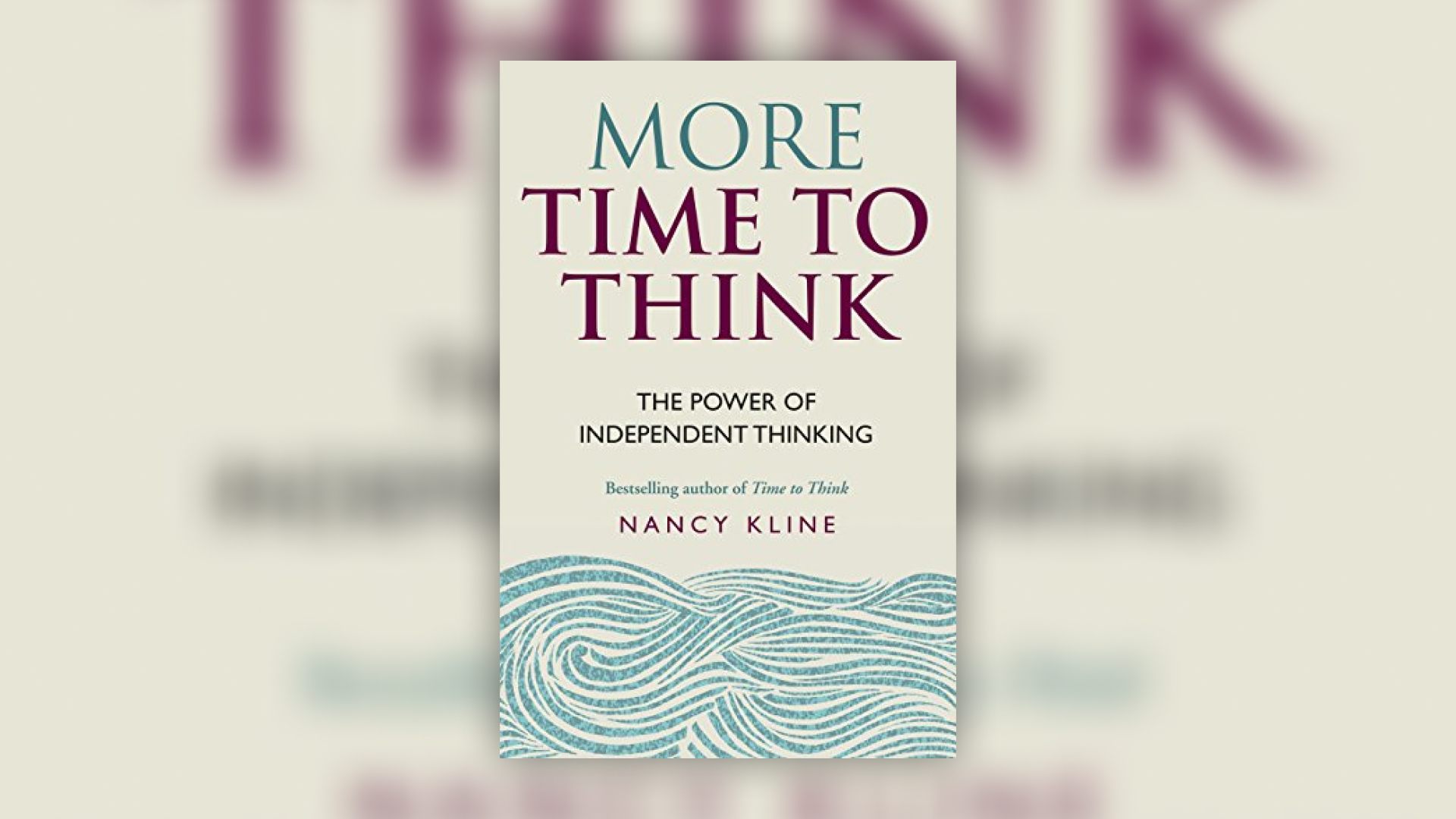Resources
More Time to Think by Nancy Kline
The power of independent thinking.
Stephanie Wong | 1 Oct 2018

Image credit: Act Build Change.
This post uses affiliate links which means that when you buy an item using the link provided we receive a portion of the sale. Affiliate links are marked with a ⟡
A book all of us and especially managers, community organisers, educators and facilitators should be reading. It will fundamentally change how you work with others, transform your 1-to-1s and build bold and beautiful organisational cultures.
If you knew that you are beautiful exactly as you are, if you knew that listening to you is the most important thing I can be doing right now, if you knew that you could figure this out, that your ideas matter, that your feelings count, that you are important, that you have a choice, that you can face anything, that you can solve this even if the experts havent, that you are a delight what new ideas would you have in this moment?
Three Takeaways
- There are ten specific ways to think brilliantly
- Bad thinking often comes from untrue assumptions
- We are all thinking equals
10 ways to think
The quality of everything human beings do, everything everything, depends on the quality of the thinking we do first.
According to Nancy, for us to think brilliantly we need ten components:
1. Attention
Attention is an act of creation.
2. Equality
Even in a hierarchy people can be equal as thinkers.
3. Ease
Ease creates; Urgency destorys.
4. Appreciation
Succinct, Sincere, Specific.
5. Encouragement
To be better than does not neccessarily mean to be good.
6. Feelings
Crying can make you smarter.
7. Information
Supplying the factsdismantling denial.
8. Diversity
The mind really works best in the presence of reality. Reality is diverse.
9. Incisive Questions
If you knew that you are intelligent, what thoughts would you dare to have?
10. Place
Prepare the place so it says to them, You matter.
Watch your assumptions
Untrue assumptions slow you down.
Assumptions drive everything: good and bad. Our negative assumptions could be that we are not smart enough, we are unlikeable, it will never work, people like me are not successful
Nancy asks us a simple question, do you think this assumption is true? and if not what is true and liberating instead? This happens when we ask each other an incisive question (expressing an idea or opinion (a liberating assumption) in a clear and direct way.
For example, you might say I am not smart enough for my manager to take my ideas seriously.
Is this assumption really true that you are not smart enough? Is it true your ideas are not worth listening to, especially to your manager?
You certainly wouldnt have the job if people thought you were not smart or worth listening to. When we test our negative assumption we often realise they are untrue.
A true liberating assumption could be that I am smart and I am worth listening to. All people deserve the respect of being heard. Once we have discovered a true liberating assumption we ask our selves an incisive question
If I knew that I was smart and worth listening to, what ideas would I have next to make our organisation work better?
The ideas you will now come up with will be much bigger, bolder and sharper than when you were thinking with from an untrue negative assumption. The power of liberating our thinking is endless.
Thinking Equals
In this world we are all thinking equals: no matter our age, experience, where we sit in an organisations hierarchy or anything else for that matter. This is rooted in making a decision to have a positive philosophical choice for all people. That we as people are fundamentally good, that we are beautiful, that we have ideas and we want to make things better not worse. A view of human life and human nature that frees the mind and helps each other to think brilliantly.
Listening to everyone is a privilege that deserves our full attention. When we intentionally listen and treat each other with this love and respect, brilliant things can happen we can change the world.